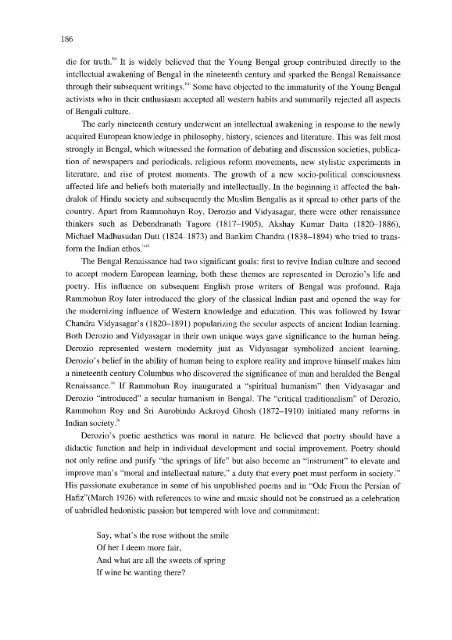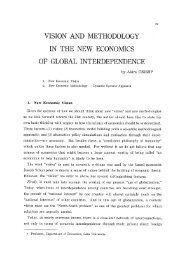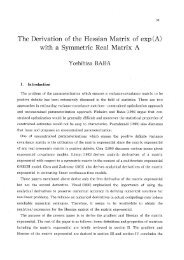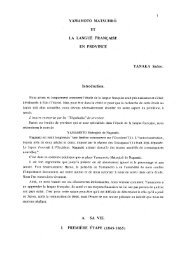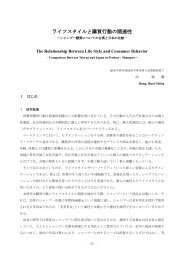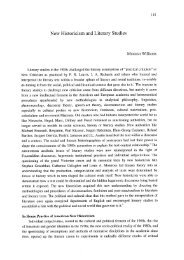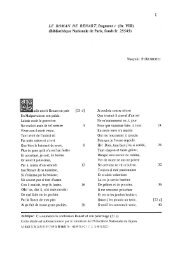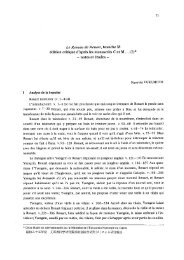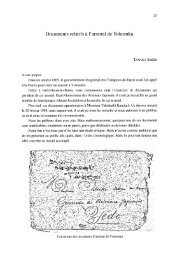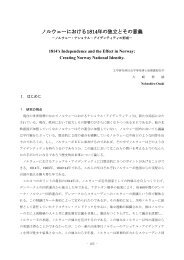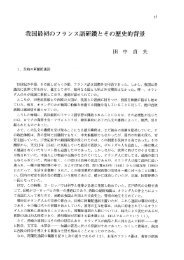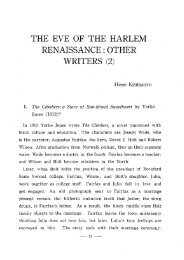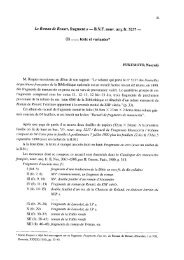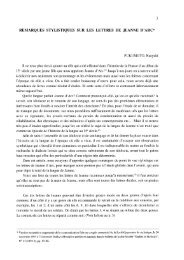Indian Writing in English 1794-2004 - Soka University Repository
Indian Writing in English 1794-2004 - Soka University Repository
Indian Writing in English 1794-2004 - Soka University Repository
Create successful ePaper yourself
Turn your PDF publications into a flip-book with our unique Google optimized e-Paper software.
186<br />
die for truth.'" It is widely believed that the Young Bengal group contributed directly to the<br />
<strong>in</strong>tellectual awaken<strong>in</strong>g of Bengal <strong>in</strong> the n<strong>in</strong>eteenth century and sparked the Bengal Renaissance<br />
through their subsequent writ<strong>in</strong>gs.'"' Some have objected to the immaturity of the Young Bengal<br />
activists who <strong>in</strong> their enthusiasm accepted all western habits and summarily rejected all aspects<br />
of Bengali culture.<br />
The early n<strong>in</strong>eteenth century underwent an <strong>in</strong>tellectual awaken<strong>in</strong>g <strong>in</strong> response to the newly<br />
acquired European knowledge <strong>in</strong> philosophy, history, sciences and literature. This was felt most<br />
strongly <strong>in</strong> Bengal, which witnessed the formation of debat<strong>in</strong>g and discussion societies, publica-<br />
tion of newspapers and periodicals, religious reform movements, new stylistic experiments <strong>in</strong><br />
literature, and rise of protest moments. The growth of a new socio-political consciousness<br />
affected life and beliefs both materially and <strong>in</strong>tellectually. In the beg<strong>in</strong>n<strong>in</strong>g it affected the bah-<br />
dralok of H<strong>in</strong>du society and subsequently the Muslim Bengalis as it spread to other parts of the<br />
country. Apart from Rammohuyn Roy, Derozio and Vidyasagar, there were other renaissance<br />
th<strong>in</strong>kers such as Debendranath Tagore (1817-1905), Akshay Kumar Datta (1820-1886),<br />
Michael Madhusudan Dutt (1824-1873) and Bankim Chandra (1838-1894) who tried to trans-<br />
form the <strong>Indian</strong> ethos.'v"'<br />
The Bengal Renaissance had two significant goals: first to revive <strong>Indian</strong> culture and second<br />
to accept modern European learn<strong>in</strong>g, both these themes are represented <strong>in</strong> Derozio's life and<br />
poetry. His <strong>in</strong>fluence on subsequent <strong>English</strong> prose writers of Bengal was profound. Raja<br />
Rammohun Roy later <strong>in</strong>troduced the glory of the classical <strong>Indian</strong> past and opened the way for<br />
the moderniz<strong>in</strong>g <strong>in</strong>fluence of Western knowledge and education. This was followed by Iswar<br />
Chandra Vidyasagar's (1820-1891) populariz<strong>in</strong>g the secular aspects of ancient <strong>Indian</strong> learn<strong>in</strong>g.<br />
Both Derozio and Vidyasagar <strong>in</strong> their own unique ways gave significance to the human be<strong>in</strong>g.<br />
Derozio represented western modernity just as Vidyasagar symbolized ancient learn<strong>in</strong>g.<br />
Derozio's belief <strong>in</strong> the ability of human be<strong>in</strong>g to explore reality and improve himself makes him<br />
a n<strong>in</strong>eteenth century Columbus who discovered the significance of man and heralded the Bengal<br />
Renaissance.1. If Rammohun Roy <strong>in</strong>augurated a "spiritual humanism" then Vidyasagar and<br />
Derozio "<strong>in</strong>troduced" a secular humanism <strong>in</strong> Bengal. The "critical traditionalism" of Derozio,<br />
Rammohun Roy and Sri Aurob<strong>in</strong>do Ackroyd Ghosh (1872-1910) <strong>in</strong>itiated many reforms <strong>in</strong><br />
<strong>Indian</strong> society.1'<br />
Derozio's poetic aesthetics was moral <strong>in</strong> nature. He believed that poetry should have a<br />
didactic function and help <strong>in</strong> <strong>in</strong>dividual development and social improvement. Poetry should<br />
not only ref<strong>in</strong>e and purify "the spr<strong>in</strong>gs of life" but also become an "<strong>in</strong>strument" to elevate and<br />
improve man's "moral and <strong>in</strong>tellectual nature," a duty that every poet must perform <strong>in</strong> society.'X`<br />
His passionate exuberance <strong>in</strong> some of his unpublished poems and <strong>in</strong> "Ode From the Persian of<br />
Hafiz"(March 1926) with references to w<strong>in</strong>e and music should not be construed as a celebration<br />
of unbridled hedonistic passion but tempered with love and commitment:<br />
Say, what's the rose without the smile<br />
Of her I deem more fair,<br />
And what are all the sweets of spr<strong>in</strong>g<br />
If w<strong>in</strong>e be want<strong>in</strong>g there?


